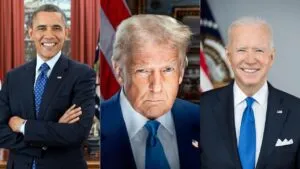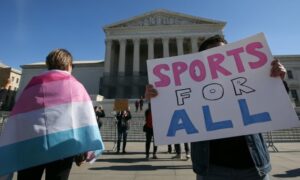Freedom is a cherished aspiration for people across the globe. Many communities strive for a world where every individual is treated with dignity and respect.
As the final hours of 2024 draw to a close, there is renewed urgency around building a foundation that welcomes the voices of all. A true culture of liberty cannot flourish overnight, yet every step forward has the power to create transformative change.
This moment calls for honest reflection, strategic planning, and bold action. I’ve prepared an exploration of core principles and practical steps aimed at encouraging a collective spirit that honors human rights, justice, and equal opportunities for everyone. Let’s get into it.
Table of Contents
ToggleThe Foundations of Freedom – Human Rights and Equality

Any society that honors freedom must begin by embracing universal rights. Those entitlements cannot be taken away, and every person should benefit from them.
Instruments such as the Universal Declaration of Human Rights highlight civil, political, economic, social, and cultural dimensions. They remind us that rights are not optional privileges; they are essential protections.
A key starting point involves expanding awareness around issues tied to racism, gender bias, and economic exclusion.
Many grassroots movements use local workshops and public events to share vital information, making it easier for people from all walks of life to bond over the quest for fairness.
Core Building Blocks for Human Rights and Equality
- Promotion of Public Education: Community forums, neighborhood libraries, and online platforms can offer accessible materials on the history of human rights and key global documents.
- Encouragement of Individual Reflection: Books, documentaries, and art often prompt reflection on personal biases and motivate people to shift harmful attitudes.
- Empowerment Through Debate: Organized events, study circles, and free speech platforms enable neighbors to compare viewpoints and refine civic engagement strategies.
Spreading reliable information becomes a powerful act. When many individuals champion ethical values and shared principles, liberty gains deeper roots.
The Power of Community Engagement

Grassroots involvement is vital for creating environments where freedom can flourish. Nothing fosters unity more powerfully than people coming together in pursuit of shared goals.
Small local efforts, when multiplied by many, can reshape entire regions.
Encouraging Participation and Inclusivity
An open society thrives when citizens are free to express opinions, propose policy ideas, and participate in public processes. Feeling heard can inspire individuals to champion pressing issues and push for new legislation.
Platforms like town halls, digital forums, and community panels create dynamic spaces for constructive dialogue. Maintaining respect for cultural, racial, and economic diversity also strengthens the community bond.
Events celebrating culture—food festivals, storytelling nights, and music performances—bridge divides and highlight the vibrancy of varied traditions.
Community Engagement Strategies
- Workshops on Anti-Discrimination: Sessions featuring activists, legal experts, and local leaders.
- Joint Volunteer Projects: Neighborhood cleanups, charity fundraisers, or mentorship programs that unify residents around service.
- Leadership Programs for Underrepresented Groups: Practical training in public speaking, media relations, and event organization.
People who are actively involved in their communities are less likely to tolerate oppression. Grassroots energy can push for change in powerful ways.
Policy Reforms and Collective Action

Even the best grassroots campaigns need policy backing. Holding leaders accountable remains a key ingredient in shaping fair legislation and practices.
In many places, policymakers require consistent pressure to enact and enforce laws that uphold freedom. Community members can write letters, sign petitions, or attend public consultations to voice concerns.
Key Legislative Focus Areas
1. Anti-Discrimination Laws
- Regulations that ban unfair treatment based on race, gender, religion, sexual orientation, or disability.
- A legal pathway that enables people to challenge oppressive behavior.
2. Equal Access to Justice
- Legal aid services and pro-bono programs for those who cannot afford representation.
- Clear procedures for resolving grievances tied to labor rights, housing discrimination, and civil liberties.
3. Transparent Governance
- Rules promoting open data, accessible public records, and accountability mechanisms.
- Freedom of information acts that empower citizens to track government projects and spending.
Laws alone do not solve every obstacle. Collective responsibility is essential. Faith groups, neighborhood associations, and businesses that adopt equitable standards can bolster systemic reforms.
Organizing around specific issues—like fair wages or rent control—yields concrete victories.
Education as a Key Catalyst

Schools and universities shape the civic character of future generations. A well-designed curriculum often promotes moral courage, critical thinking, and empathy.
Encouraging students to question entrenched assumptions can spark curiosity and social engagement.
Fostering Inclusive Educational Practices
1. Active Learning Methods
- Group projects, debates, and community service.
- Assignments that highlight real-world problems, teaching learners to think independently.
2. Values of Empathy and Respect
- Classroom discussions on equality and fairness.
- Role-playing activities that model respectful dialogue on difficult topics.
3. Empowerment Beyond the Classroom
- Student councils that handle peer-led initiatives on bullying, discrimination, and mental wellness.
- Extracurricular projects promoting diversity in art, sports, or technology clubs.
Legal and Economic Dimensions
More than ideas alone are needed. Freedom requires legal protections and fair economic structures. Barriers to justice remain a major hurdle for countless communities, particularly those without resources.
Robust legal frameworks—such as anti-discrimination statutes—must include clear enforcement channels. Equitable access to lawyers and transparent court systems ensures that rights become reality, not idle promises.
Tackling Economic Disparities
Economic inequality can suffocate liberty. When wealth is concentrated in the hands of a few, entire segments of society lose decision-making power. Countering that imbalance can open new doors for underrepresented communities.
Potential Solutions
- Progressive Tax Policies: Well-crafted tax codes that direct revenue toward healthcare, public education, and social welfare.
- Social Safety Nets: Programs that protect individuals during periods of unemployment or illness, preventing poverty from eliminating freedom of choice.
- Fair Employment Practices: Proper enforcement of minimum wage laws, workplace safety guidelines, and non-discrimination hiring policies.
No single action fixes every injustice, but smart policy combined with public pressure can dismantle oppressive structures. Gradual steps add up, sparking ripple effects that benefit society at large.
The Importance of Civil Society Organizations
Independent groups that champion human rights make an enormous difference. They often shine a spotlight on abuses that might otherwise stay hidden.
From community-based projects to global networks, those organizations challenge oppressive actions and uplift marginalized voices.
How Civil Society Groups Support Freedom
- Legal Aid and Advocacy: Attorneys who assist people facing injustices. Campaigners who lobby lawmakers to pass equitable legislation.
- Monitoring and Reporting: Investigations into racial profiling, gender bias, or labor violations. Public reports that hold powerful entities responsible for their actions.
- Education and Outreach: Workshops, seminars, and social media campaigns that equip communities with knowledge about rights and how to defend them.
- Coalition Building: Partnerships that foster shared expertise and create space for diverse perspectives.
Groups like Equality Now, Global Rights, and the Center for Economic and Social Rights illustrate the impact of dedicated advocacy. Success stories from activists in different corners of the world inspire fresh leaders to enter the arena.
Obstacles and the Need for Support
Not every organization operates in a friendly atmosphere. In many regions, harsh regulations, scarce funding, and safety threats limit progress. Government intimidation or legal barriers can stifle vital work.
International solidarity helps mitigate those threats, offering a lifeline in environments where activists face harassment. Outside organizations often step in with funding, training, or diplomatic backing.
Global partnerships magnify local efforts, showing that no group is isolated in its pursuit of liberty. By standing alongside civil society organizations, individuals everywhere assert their role in extending freedom to every corner of the planet.
Summary
A free society honors the dignity of every person through respect, empathy, and equitable policies. Approaching the last days of 2024, there is a strong feeling that unified efforts can transcend obstacles and pave the way for a more just world.
That path involves grassroots organizing, strong policy initiatives, inclusive education, and a commitment to protect the rights of each individual, regardless of background or status.
No vision of liberty is ever complete; progress demands sustained energy, open-hearted discourse, and ongoing reflection. May there be a collective decision to work, side by side, for equity and hope in every region.
Through determined collaboration, each action—no matter how small—becomes part of a greater legacy, one in which freedom truly belongs to all.








